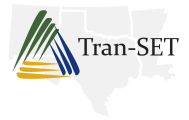Document Type
Data Set
Publication Date
11-2022
Abstract
This study evaluated the use of cost-effective alternative materials in the formulation of novel low-cost Engineered Geopolymer Composite (EGC) materials for repair and new construction of transportation infrastructure in Region 6. Previous studies and reports have shown that EGCs have excellent mechanical properties, which makes them an eco-friendly and more sustainable alternative to Engineered Cementitious Composites (ECCs). However, the mass adoption of these emerging composites is expected to be hindered by their cost, which is mainly driven by the use of PVA reinforcing fibers, silica fume (SF), and manufactured microsilica sand (MS). To address this key shortcoming, novel low-cost EGC materials for repair and new construction of transportation infrastructure in Region 6 were developed by: (1) metakaolin (MK) and fly ash (FA) as replacements of commonly used SF for GP binders; (2) low-cost PP fiber, PVA fiber, and hybrid systems of PP and PVA fiber; and (3) natural sand instead of commonly used manufactured MS. The MK-FA GP binders were tested for compressive strength and characterized with scanning electron microscopy (SEM) and energy-dispersive X-ray spectroscopy (EDS), while the MK-FA GP composites were tested for workability, compressive strength, and uniaxial tensile strength (UTT). Based on the experimental findings, it was concluded that 20-40 wt% of FA replacement was the optimal range for Na-based MK-FA GP with the strength values of ~12-14 MPa, while 50 wt% of FA replacement had the highest strength for K-based MK-FA GP of 17.2 MPa at 90-day. For composites, the mortar with the highest compressive strength reached a value of 10.6 MPa with 45% of river sand, and with 4 wt% SF and 1.5% PVA+0.25% PP fibers, it reached 21 MPa as a fiber-reinforced composite at 28-day. The composite with 10 wt% SF and 1.75% PE had the highest UTT of 3.97 MPa and a strain capacity of 1.78%. All the slant shear test specimens meet the 28-day shear bond strength requirement according to ASTM C882.
Recommended Citation
Noorvand, H., Hassan, M., Radovic, M., Sukhishvili, S., Arce, G., AbuFarsakh, R., Alvarado, A. A., Huang, O., & Zhen, S. (2022). Low-Cost Sustainable Engineered Geopolymer Composites (EGCs) for Repair and New Construction of Transportation Infrastructure. Retrieved from https://repository.lsu.edu/transet_data/147


Comments
Tran-SET Project: 21CLSU19